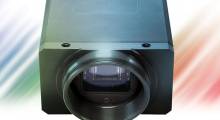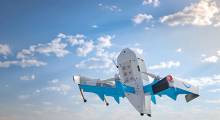Plug Power, a leader in providing energy solutions that change the way the world moves, in partnership with Rensselaer Polytechnic Institute (RPI) Center for Automation Technologies & Systems (CATS) and the U.S. Department of Energy’s (DOE’s) National Renewable Energy Laboratory (NREL), is innovating in the space of robotics and automation, specifically with a first-of-its-kind robotic hydrogen fueling technology for motive power applications.
The immediate goal of the robotic fueling station is to increase the ease and efficiency of fueling hydrogen-powered vehicles in warehouse settings, where every second amounts to more than $1,000 in annual cost impact for medium to large sites.
The Plug Power and RPI CATS teams completed a pilot feasibility study for the robotic fueling station, which demonstrated the ability of the system to independently interconnect the fuel cell to the fueling station without human intervention. Alongside Plug Power’s engineering team, RPI CATS students developed the technology for the robotic fueling station pilot study, including the computer vision, sensors, robotic manipulation of the fueling nozzle, and remote controlling mechanisms.
“Today, the technology can retrofit existing GenFuel sites supporting the more than 20,000 GenDrive fuel cells in the field,” said Dustan Skidmore, Vice President of Engineering for Plug Power. “In the future, the technology can be used in on-road fleet vehicles, autonomous guided vehicles (AGVs), and self-driving passenger cars.”
“The Plug Power partnership is a great success story for RPI CATS, as we look to develop projects that will become an important part of the business’ long-term strategy,” said Stephen Rock, PhD, senior research scientist at RPI. “Our students gain real-world exposure to companies that they would not otherwise get in the classroom, and get to work on cutting-edge technologies. We’re proud of our program and believe that it is essential to the growth of New York State’s technology leadership position in the U.S. and worldwide.”
The research and development team will use a $2 million grant recently awarded by the DOE Office of Energy Efficiency and Renewable Energy (EERE) to develop a commercially viable autonomous hydrogen fueling station, with additional technology development including data exchange, interconnection interfaces, and robotic equipment that meets the safety standards of commercial deployment in unstructured environments. NREL will leverage research experience in hydrogen station performance evaluation and component and system reliability to conduct preliminary testing for on-road fueling. The learnings from this work will then be used to develop a demonstration on-road dispenser.
“We’re thrilled with the outcome of the RPI CATS team’s work on this successful pilot project, and look forward to continued collaboration with both CATS and NREL,” said Andy Marsh, CEO of Plug Power. “We view our partnership with RPI an important investment in the future of the region, giving students the real-world experience they need to make New York State a corridor for hydrogen and clean-energy technology now, and in the decades to come.”
Article topics
Email Sign Up
















